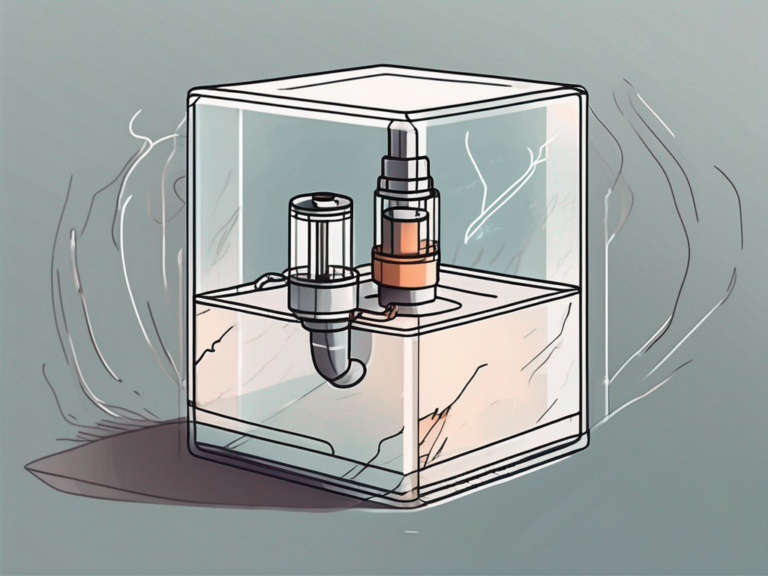what vapes can go through metal detectors
When it comes to traveling with vaping devices, one common concern among vapers is whether their devices can pass through metal detectors without triggering any alarms or causing unnecessary inconvenience. In this article, we will explore the relationship between vapes and metal detectors and shed light on what vapes can go through metal detectors without any issues. Understanding the science behind metal detectors is the first step in clarifying this matter.
Understanding Metal Detectors
The Science Behind Metal Detectors
Metal detectors are electronic devices designed to detect metallic objects. They work on the principle of electromagnetic induction, utilizing a magnetic field to identify metal items. When a metallic object comes into the proximity of a metal detector, it disrupts the magnetic field and triggers an alarm.
Furthermore, metal detectors consist of a transmitter coil that generates a magnetic field and a receiver coil that detects any disruptions in the magnetic field caused by metal objects. The receiver coil sends signals to the control unit, which processes the information and produces an audible or visual alert to notify the user of the presence of metal. This process is based on the fundamental laws of electromagnetism and the behavior of metal in magnetic fields.
Common Types of Metal Detectors
There are various types of metal detectors used in diverse applications, such as airport security, construction sites, and archeological projects. The most common types include walk-through metal detectors, handheld metal detectors, and ground-penetrating radar systems. While the underlying principle remains the same, their sensitivity and capabilities may differ.
Walk-through metal detectors are commonly seen in airports and public venues, where large numbers of people need to be screened efficiently. Handheld metal detectors are more portable and versatile, often used by security personnel for targeted searches or in locations where walk-through detectors are not practical. Ground-penetrating radar systems, on the other hand, are specialized metal detectors used in archeology and construction to detect buried metallic objects or structures beneath the ground.
The Composition of Vapes
Materials Used in Vape Construction
Vapes, also known as electronic cigarettes, consist of several components that work together to provide a satisfying vaping experience. These components include a battery, atomizer, coil, tank or cartridge, and e-liquid. The construction materials vary, but commonly include stainless steel, glass, plastic, and ceramic.
Stainless steel is often used for the body of the vape due to its durability and resistance to corrosion. Glass is commonly found in the tank or cartridge, providing a clear view of the e-liquid level and ensuring a clean taste. Plastic components are lightweight and cost-effective, making them ideal for certain parts of the vape. Ceramic materials are utilized in coils for their ability to distribute heat evenly and enhance the flavor of the vapor.
Different Types of Vapes and Their Components
There are different types of vapes available in the market, such as pod systems, box mods, and pen-style devices. Each type has its unique design and components, but they all serve the same purpose of heating the e-liquid and producing vapor. The composition and materials used in these devices may vary, but most vape manufacturers prioritize durability and quality.
Pod systems are compact and user-friendly, often featuring a pod cartridge that houses the coil and e-liquid. Box mods are larger devices that offer customization options such as adjustable wattage and temperature control. Pen-style vapes are slim and discreet, making them convenient for on-the-go vaping. Regardless of the type, vapes have revolutionized the smoking industry by providing a less harmful alternative to traditional cigarettes.
Vapes and Metal Detectors
Factors Affecting Vapes Detection
When it comes to the detectability of vapes by metal detectors, several factors come into play. The sensitivity of the metal detector, the type and size of the vape device, and the materials used in its construction all play a role in determining whether a vape device will trigger the metal detector’s alarm.
Moreover, the design of the metal detector itself can also impact the detection of vapes. Some metal detectors are specifically calibrated to pick up on certain types of metals or materials, while others may have a broader range of detection. This means that even vapes made from non-metallic materials could potentially set off an alarm if the metal detector is set to be highly sensitive.
Vapes That Can Pass Through Metal Detectors
While it is generally recommended to remove any metallic items before passing through a metal detector, some vapes can go through these detectors without causing any alarm. Vape devices that are primarily made from non-metallic materials, such as plastic or ceramic, are less likely to trigger the detectors. However, it is always advisable to check the specific rules and regulations of the place you are visiting or traveling through before deciding to pass through a metal detector with a vape device.
Additionally, the size and shape of the vape device can also impact its detectability by metal detectors. Smaller, more discreet vape pens are less likely to be flagged by metal detectors compared to larger, bulkier devices. This is because smaller vapes have less surface area and are less likely to contain significant amounts of metal that could trigger the alarm.
Traveling with Vapes
Airport Security and Vapes
When it comes to air travel, airport security can be particularly strict. Most airports have specific guidelines regarding the transportation of vaping devices and e-liquids. It is crucial to familiarize yourself with these guidelines before heading to the airport. Typically, these guidelines require vapers to carry their devices in their carry-on baggage and store e-liquids in a transparent plastic bag.
It’s important to note that some countries have banned the use of vaping devices altogether, so it’s essential to research the vaping laws of your travel destination before packing your vape gear. Failure to comply with local regulations could result in hefty fines or even legal consequences. Always err on the side of caution and respect the laws of the country you are visiting.
Tips for Traveling with Vapes
To ensure a hassle-free travel experience with your vape device, there are a few tips to consider. Firstly, make sure your device is fully charged before heading to the airport. Empty your tank or cartridge to prevent leakage during the flight. Additionally, always check the airline’s regulations regarding vaping devices and liquids, as they may have specific rules that differ from one carrier to another.
Another tip to keep in mind is to pack your vape gear in a sturdy case to protect it from damage. Investing in a shockproof and waterproof case can provide an extra layer of protection for your device, especially during the hustle and bustle of travel. Remember, proper storage and handling of your vape gear not only ensure its safety but also contribute to a smoother travel experience overall.
Legal Implications and Regulations
Laws Regarding Vapes and Metal Detectors
The legal implications surrounding vapes and metal detectors can vary depending on the jurisdiction. In some countries or states, it may be illegal to use or carry vaping devices altogether, while in others, it may be permitted within certain restrictions. To avoid legal complications, it is vital to research and understand the laws and regulations governing vaping in the location you are in or traveling to.
Furthermore, it’s important to note that the regulations surrounding vaping are constantly evolving as authorities strive to keep up with the rapid growth of the industry. For instance, some jurisdictions have implemented strict age restrictions on purchasing vaping products to prevent underage usage. Additionally, there have been debates on whether vaping should be allowed in public spaces due to concerns about secondhand vapor exposure. Staying informed about these changing laws is crucial for vapers to ensure compliance and avoid potential legal issues.
Consequences of Undeclared Vapes at Security Checkpoints
Undeclared vapes can have serious consequences at security checkpoints, especially in high-security areas such as airports. Ignorance or deliberate non-disclosure of vaping devices can result in fines, confiscation of the device, delays, or even legal penalties. To avoid such situations, it is important to be aware of and comply with the regulations in place.
Moreover, the consequences of attempting to sneak vapes through security checkpoints can extend beyond legal penalties. In some cases, security personnel may need to conduct additional screenings or searches, leading to inconvenience for the traveler and other passengers. This not only causes delays but also creates a stressful environment for everyone involved. Therefore, transparency and adherence to security protocols are essential to ensure a smooth and efficient screening process.
To summarize, vapes can go through metal detectors without causing alarms, provided they are primarily made from non-metallic materials. However, it is crucial to check the rules and regulations of the specific location or transportation authority you are dealing with. By understanding the science behind metal detectors and being aware of the legal implications, vapers can navigate security checkpoints confidently and enjoy their vaping experience without unnecessary hassles.






